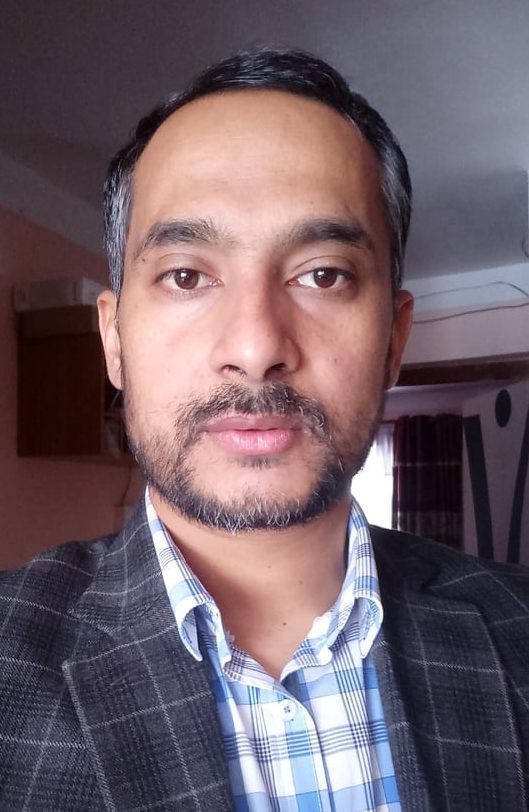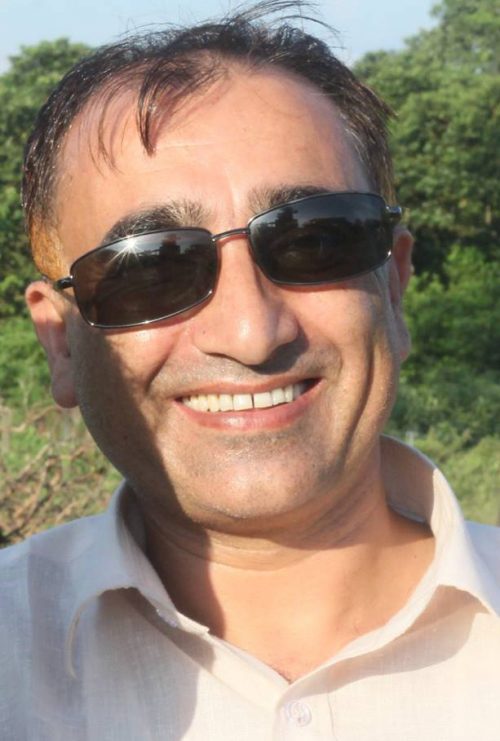– Dr. Niraj Poudyal
I sometimes wonder what it would be like to experience the moments right before and after death! I think I would definitely feel emotional pain at the least just before death knocks the door unless the death accomplishes what it wants in a blink of an eye without prior notice and expectations or if I go unconscious long before I die.
I fear death for life is too tempting. But what about the exact moment of death and after the death? No one has been able to give a convincing answer yet. I think the finding of near-death experience (NDE) studies just makes us think about the definition and meaning of death itself. The NDE experience is not evidence of life after death; rather it’s the evidence of our ignorance on the meaning of life, death and the border that separates the two.
Even if I feel something at the moment of death, I won’t be able to come back and tell my story. If, somehow, I come back alive, then the experience I had would not be of death but of something else. I would never be able to write my experience of whatever pain or pleasure I might endure at the moment of death.
Having empirical nihilist position, I believe in death as an end of me, my conscious existence and whatever constitutes me being alive. My body will disintegrate into strands of atomic and subatomic particles and quantum pockets of wave functions. My death will constitute a tiny spec of the ultimate demise of this universe, ironically known as heat death, into cold zero density stretch of space. My purposeless existence will cease to exist purposelessly.
Reincarnation is the last thing one would want if the goal is to feel death. If reincarnation is true in any sense, Judeo-Christian or Hindu-Buddhist, we will lose the opportunity to experience death. Reincarnating into a non-life would be contradictory to its own definition. If we are going to reincarnate into another life, some form of us must stay alive until we reincarnate. If everything is dead, then there would be nothing to ensure continuation of our lives. Ironically, if something of us is not dead fully, we are not dead at all. Alas!! We were supposed to experience death that does not exist in the universe that allows reincarnation ! This path does not lead to proper experience of death, I think.
I wonder if I can guess how it feels after death if I contrast it with feeling of life, reverse image of death. I define life as a set of limits. In a sense, existence itself is a set of limitations on non-existence. Without limits, nothing would exist. Even nothing needs limitations to exist. Life, as it exists, prohibits from happening everything. Most of the things that we might want to happen will not happen because of this limitation. Pain itself is the immediate result of this limitation. Had we possessed to cross the boundaries of these limitations, I wonder if pain would make any sense. In this sense, life is a pain or suffering, as Budhha puts it. Moments of pleasure are just some random and rare spikes in the sea of suffering. Being the reverse image of life, death may feel like sea of pleasure with rare painful cavities. No heaven can match this after death experience. At the end of the day, we all strive for days full of fun with tiny bits of suffering and life not only full of joy but also with tiny bits of painful moments so that we can shed our tears down.
People have dream life. This is my dream death.
Life is not a dream and nor is death. I know there won’t be anyone to feel my death with any accuracy whatsoever. The neurons of my brain that can feel the dark cold universe will break apart and turn into lifeless electrons, protons and neutrons. The meaning of pain and pleasure will cease to apply after my death. I will feel exactly like what I might have felt before I was even fertilized. The end of things will feel exactly like there was no beginning. People are scared of death. But no one is scared not to be borne into this world. Entropy is the only thing that makes them different in physical sense. But for me, it’s the same.
Of course, I suffer now thinking about my untimely death. I am worried for my kids and my loved ones. In my absence they will suffer. And this is painful for me. I suffer too. But this is a suffering for living me. This is not the feeling of death. This is a feeling of living a life and imagining a difficult future of my loved ones without me. They will see me dying, or maybe not. They might know my death, or maybe not. But I will not feel my own death. I will not know my own death. I will not live to see and judge my death.
[Dr. Poudyal is Assistant Professor at School of Arts]


